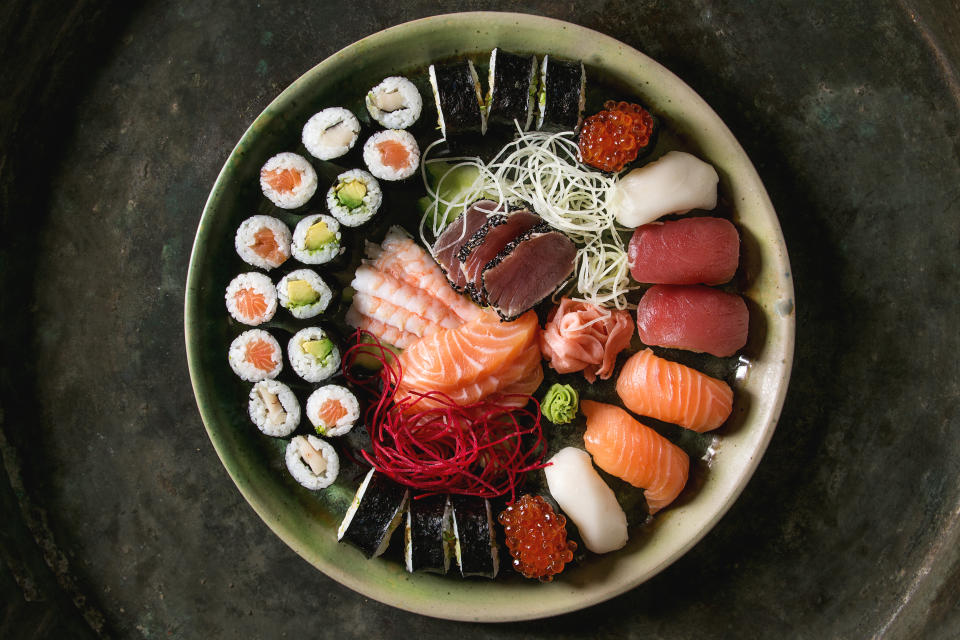'I started feeling my mortality': Singer says she got mercury poisoning from a pescatarian diet
Looking for more of the best deals, latest celebrity news and hottest trends? Sign up for Yahoo Lifestyle Canada’s daily newsletter, coming soon!

Janelle Monáe has revealed she developed mercury poisoning after following a pescatarian diet.
The 34-year-old singer and “Hidden Figures” actress shared the frightening health news during a recent interview with The Cut. Monáe told the online magazine that her seemingly-healthy pescatarian diet, a vegetarian-based diet that includes fish and seafood but excludes all meat products, caused her to become ill.
ALSO SEE: 'This is a normal occurrence': Blogger shares photo of little-known pregnancy side effect
“I started feeling my mortality,” Monáe said. The “Make Me Feel” singer has been focusing on recovery and making her health a priority as she hopes to begin a family in the near future.

Monáe isn’t the first celebrity to become ill from the fish-heavy diet. In 2009, “Entourage” actor Jeremy Piven was sued by Broadway producers for breach of contract after he dropped out of a revival of David Mamet’s “Speed-The-Plow.” Piven cited mercury poisoning from his diet, which included large amounts of raw fish, as the reason for his departure.
The incident, which was infamously referred to as “Sushigate,” ended when an arbiter ruled in favour of Piven after his doctor testified that the actor tested positive for Epstein-Barr virus (also known as mononucleosis) and high levels of mercury toxicity.

“I was living a life that was so completely uncomfortable,” Piven said in a 2010 interview with film critic Peter Travers. “I would sleep until the moment I got on that stage and then I got to the point where I would be 20 minutes into the performance and I would start shaking and I had no fuel. I had to eat as much food as I could until the moment I got on stage and it would barely get me through the performance.”
What is mercury poisoning?
Mercury is a naturally occurring element that exists in different forms and can be found in air, soil, water and rocks. While all bodies contain trace amounts of mercury, mercury poisoning occurs when the body’s levels of mercury increase to toxic levels. The most common form of mercury poisoning is caused by exposure to the highly toxic organic mercury compound methylmercury, often found in fish.
ALSO SEE: Chinese doctor silenced by police over outbreak warning diagnosed with coronavirus
According to the United States Environmental Protection Agency (EPA), when mercury is released into the air (either through burning coal, wood and oil), it settles into lakes and bodies of water. Bacteria in waterbodies transforms the mercury into methylmercury, which builds up in all living things, including fish and humans.

Large quantities of mercury can cause damage to the nervous system. Early signs of mercury poisoning include physical tremors, numbness, anxiety, memory loss and depression. As toxicity levels continue to rise, more symptoms will appear, including muscle weakness, nausea and vomiting, metallic taste in the mouth, difficulty standing or walking, lack of motor-skills, inability to feel hands, face or other parts of the body and can cause permanent brain or kidney damage.
Mercury poisoning poses an increased risk for pregnant women and women who are breastfeeding. Harmful mercury toxins can be passed from mother to child and can impair brain and neurological development.
Which fish should you avoid?
Fish is a healthy source of protein and omega-3 fatty acids, but it’s important to know which kinds contain high levels of mercury.
As a rule of thumb, the larger the fish, the higher the levels of mercury will be. Predatory fish such as marlin, tuna, grouper, mackerel, bluefish and shark consume the mercury that exists in their prey. Since mercury is compounded in the body, mercury levels in predatory fish increase as they absorb mercury from the smaller fish they eat through biomagnification.
Visit the Canadian Food Inspection Agency or the U.S Food and Drug Administration for more information.
Let us know what you think by commenting below and tweeting @YahooStyleCA! Follow us on Twitter and Instagram and sign up for our newsletter, coming soon.



